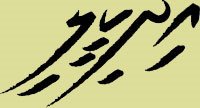(This is a comment we posted to GroundSix blog).
Wow. We didn’t know we had such loyal fans. We thought we were running another misunderstood and misused blog (http://idhikeeli.blogspot.com). There are a few things we want to clarify about the comment by our fan. The coup attempt was made not in 1989 but in November 1988. The trial proceedings could have started in 1989 because the whole machinery of government required sometime to start spinning after the shock of the coup attempt. Mr Ahmed Zaki was not speaking directly to the PLOTE members involved. There were translators in the trial to speak in Tamil. So Mr Zaki was asking “Eyna Kairin Assava ballavaa, eynaa male’ ah eri iru huree hama heygai tho nuvatha noon tho” (Ask him if he was in the proper state of mind, or sober, when he came to Male’.) Yes. It was indeed one of the most memorable things about Mr Zaki.
Mr Zaki was not the first Prime Minister of Maldives. There were Prime Ministers in the 19th and early 20th century as well. Ibrahim Dhoshimeyna Kilegefaanu and Abdul Majeed Ranna Badeyri Kilegefaanu were some of the notable Prime Ministers. But there was no parliamentary system in place back then. In fact, Parliament became an important institution of the state of Maldives much later. Mr Zaki’s period as Prime Minister was also not an example of parliamentary system as ministers were not appointed from the Parliament.
However, we agree that Mr Zaki’s fallout with President Ibrahim Nasir could give some strength to our argument (and our fan’s) that parliamentary system will have much more shortfalls if introduced to Maldives. Rivalry among the nobles occurred frequently in the history of Maldives. Their fights are well-documented in the Dhivehi Thaareekh by Hassan Thajudheen and more recently by Mohamed Nasheed (Anni) in Dhagadu Dhahana. Such fights did not begin with Dhon Bulha Faashana and Buraki Ranin and it did not end with Mr Ahmed Zaki and President Ibrahim Nasir. The irony is that even Zaki and Nasir were close relatives. The irony continues to this day with the inner struggles in the DRP between Yameen Abdul Gayoom and his brother Maumoon.
When such rivalries occur, the nobles and the powerful align with different factions in the power struggle. Like Kakaage and Athireege clash of 19th century, the Kaamineege and Endherimaage clash of today is producing similar alignment with factions. We are now hearing of 10 MPs having submitted their resignation from DRP. What we see today is an effort by the rich and powerful to win over MPs and come to power through parliament.
In a corrupt and decadent place like Maldives it is very easy to buy loyalty. It is for this reason that checks and balances are required. That is the reason why separation of powers in its most strict form is needed in the Maldives. If the Parliament and the Executive are two overlapping branches (as in a parliamentary system), the corrupt MPs have the chance to directly control the Executive. So we need our parliament to be a separate entity. We need our Executive to be a separate body. We need our Judiciary to be separate. We don’t want MPs to become our cabinet ministers. We don’t want people like Mavota Shareef to be in cabinet as well.
VOTE FOR SEPARATION OF POWERS – VOTE FOR PRESIDENTIAL SYSTEM


2 comments:
i beleive that its not about the system that we need to ahve..its more about educating the people...what ever the system the politicians impleemtn the public still if ignorant to it will work by default against it..
Your blog keeps getting better and better! Your older articles are not as good as newer ones you have a lot more creativity and originality now. Keep it up!
And according to this article, I totally agree with your opinion, but only this time! :)
Post a Comment